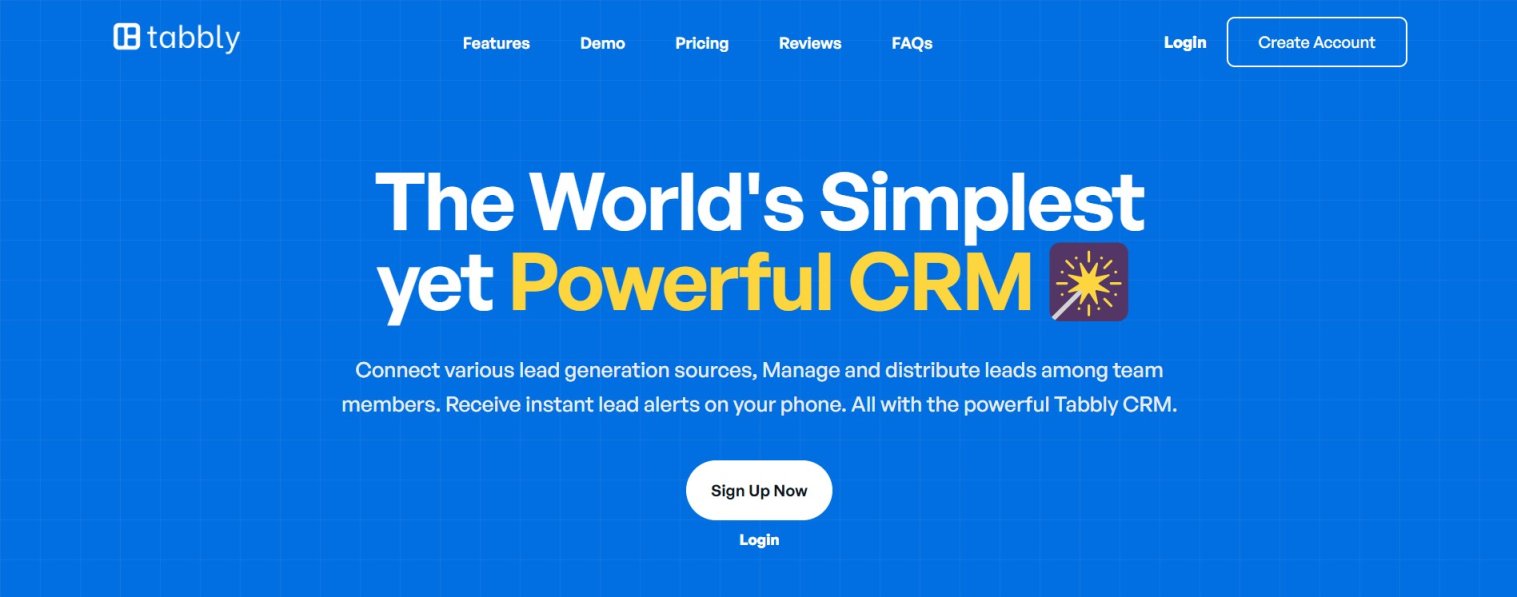The voice AI revolution is here, and it's transforming how businesses interact with customers. From automating customer service to streamlining sales processes, AI-powered voice agents are becoming essential tools for modern enterprises. Today, we're diving deep into two major players in this space: Vapi.ai and Tabbly.io, to understand their strengths, weaknesses, and which might be the right fit for your business.
The Rise of Vapi.ai: Developer-First Voice AI Platform
The Company Behind the Technology
Founded in 2020 by Jordan Dearsley and Nikhil Gupta, Vapi.ai has quickly established itself as a leading voice AI platform for developers. Based in San Francisco with a lean team of 10 employees, the company has achieved remarkable growth, reaching $8M in revenue in 2025 - a 78% increase from $4.5M in 2024. This impressive trajectory caught the attention of investors, leading to a $20 million Series A funding round led by Bessemer Venture Partners.
What Makes Vapi.ai Special?
Vapi positions itself as "the Voice AI platform for developers," and this developer-first approach is evident in everything they do. The platform addresses one of the biggest pain points in voice AI development: the complexity of building conversational systems from scratch.
Core Value Proposition:
- Build, test, and deploy voice AI agents in minutes instead of months
- Handle complex infrastructure challenges like turn-taking, interruption handling, and backchanneling
- Achieve ultra-low latency (500-800ms voice-to-voice) internationally
- Provide complete control over each component with dozens of AI providers to choose from
Technical Architecture That Delivers
Vapi's technical foundation is built around solving the foundational challenges that voice AI applications face:
1. Real-Time Performance The platform maintains responsive conversation demands with sub-800ms latency globally, which is crucial for natural-feeling interactions.
2. Modular Design Philosophy Users can mix and match components from providers like OpenAI, Anthropic, Google, Deepgram, and ElevenLabs. This flexibility allows developers to optimize for their specific use cases.
3. Comprehensive SDK Support
- Web SDK for browser applications
- iOS SDK for native mobile apps
- Flutter SDK for cross-platform development
- React Native SDK for hybrid applications
- Python SDK for desktop and server applications
Advanced Features for Complex Use Cases
Flow Studio: A no-code drag-and-drop editor that enables users to build interactive conversations without coding, using visual decision trees and conditional logic.
Telephony Integration: A unified platform for creating and managing both inbound and outbound voice-based automations.
Enterprise-Grade Security: HIPAA compliance, SOC 2 Type II certification, and GDPR compliance with end-to-end encryption and secure data handling.
Vapi Pricing: Understanding the Cost Structure
When evaluating voice AI platforms, pricing is often the deciding factor for businesses. Vapi pricing operates on a transparent usage-based model, but understanding the full cost structure is crucial for making informed decisions.
Vapi's pricing model includes several components:
- Platform fees: Vapi charges for orchestration and infrastructure management
- Provider costs: Third-party AI service costs (Speech-to-text, LLM, Text-to-speech) pass through directly
- Usage-based billing: You pay for what you use, which can range from ₹0.2 to ₹7 per minute depending on the AI models and features selected
While Vapi doesn't add markup to provider costs, the combined expense can quickly add up, especially for businesses with high-volume voice interactions. The final cost depends on your choice of AI providers, conversation complexity, and usage patterns.
The Business Model Behind Vapi's Success
This transparent approach has proven successful, with the company demonstrating strong unit economics and sustainable growth patterns that attracted significant venture capital investment. However, the variable nature of vapi pricing can make budget planning challenging for businesses with fluctuating voice AI needs.
Real-World Applications Across Industries
Customer Service Revolution
Voice AI agents handle customer inquiries 24/7, providing immediate responses while maintaining the ability to escalate complex issues to human agents.
Healthcare Innovation
With HIPAA compliance, medical practices can deploy voice AI for patient interactions, appointment scheduling, and basic medical inquiries while maintaining strict regulatory compliance.
Sales Automation
Outbound sales agents can schedule appointments, qualify leads, and maintain consistent follow-up processes, dramatically improving sales team productivity.
Educational Enhancement
Interactive voice tutors can quiz students, provide explanations, and offer personalized learning experiences that adapt to individual learning styles.
The Competitive Landscape
The voice AI platform market includes several notable competitors:
- Bland AI: Enterprise-focused with strong telephony features
- Retell AI: Specializes in real-time conversational AI
- Vocode: Open-source approach with strong developer community
- LiveKit: All-in-one platform with robust real-time capabilities
Each platform has its strengths, but Vapi's developer-first approach and comprehensive feature set have helped it carve out a significant market position.
However, There's Another Player Worth Considering...
While Vapi.ai has established itself as a solid platform for developers, there's another solution that's been gaining attention for its superior approach to voice AI: Tabbly.io.
Why Tabbly.io Stands Out as the Superior Choice?
A More Comprehensive Approach
Where Vapi.ai focuses primarily on providing APIs and infrastructure for developers to build upon, Tabbly.io offers a complete, end-to-end AI voice automation solution. This fundamental difference in approach leads to several key advantages:
1. True Human-Like Conversations
Tabbly.io's voice agents function as virtual customer representatives, effectively handling inquiries, resolving issues, and facilitating natural conversations without requiring human oversight. The platform utilizes advanced Natural Language Processing (NLP) and speech synthesis technologies to provide highly human-like interactions that significantly enhance customer experience compared to traditional systems.
2. Superior Global Reach
The platform supports multiple languages and regional accents, making it suitable for global businesses that need AI agents capable of engaging with a diverse customer base. This multilingual and accent-sensitive communication capability goes beyond basic language support to truly understand cultural nuances and regional variations.
3. More Cost-Effective Pricing
When comparing vapi pricing with Tabbly.io's approach, the difference is striking. While Vapi pricing can range from ₹0.2 to ₹7 per minute (depending on AI models and features), Tabbly.io offers more predictable and often more economical pricing:
Essentials Plan: ₹6.5 per minute (approximately $0.08)
- Almost 9 times cheaper than hiring a human agent, which costs around ₹57 per minute
- Real-time voice conversations
- 50+ languages supported
- Recordings & AI analysis
- Self-learning AI capabilities
Scale Plan: ₹5 per minute (approximately $0.06 for large volumes)
- Custom integrations
- Programmatic APIs
- Priority support
- Everything from Essentials Plan
The key advantage of Tabbly.io's pricing is its simplicity and predictability. Unlike vapi pricing, which can vary significantly based on your provider choices and usage patterns, Tabbly.io offers straightforward per-minute rates that make budget planning much easier.
4. Seamless Integration Capabilities
Tabbly.io includes an API that allows businesses to integrate AI voice agents smoothly with existing systems such as CRMs, chatbots, and customer support software, facilitating workflow automation. This integration capability is more comprehensive than Vapi.ai's approach, offering pre-built connectors and workflows.
5. Advanced Intelligence Features
With intelligent call routing features, Tabbly.io ensures that routine queries are managed by AI agents, while complex issues are seamlessly transferred to human representatives whenever necessary. The platform also provides:
- Real-time analytics and sentiment analysis
- Customer intent detection
- Self-learning capabilities that improve over time
- AI-powered scoring and performance metrics
6. Industry-Specific Solutions
While Vapi.ai provides general-purpose tools, Tabbly.io offers specialized solutions for specific industries:
Sales & Support: Automated responses, follow-up generation, real-time recommendations Education: Personalized study plans, automated grading, interactive assessments Hiring: AI-driven interviews, resume screening, candidate ranking Loan Recovery: Automated follow-ups, personalized messaging, negotiation assistance Cold Calling: Personalized scripts, lead qualification, conversion optimization
7. Superior User Experience
Key features that make Tabbly.io more user-friendly:
- 24x7 connectivity
- Complete call recordings and transcription
- Crystal clear audio quality
- Easy-to-use interface
- Multi-lingual agent capabilities
- Advanced data operations
The Verdict: Why Tabbly.io is the Better Choice
While Vapi.ai has built a solid platform for developers who want to build voice AI applications from the ground up, Tabbly.io offers a more complete, cost-effective, and user-friendly solution for businesses that want to implement voice AI quickly and efficiently.
Choose Vapi.ai if you:
- Are a developer who wants maximum control over every aspect of your voice AI implementation
- Have the technical resources to build and maintain complex voice AI systems
- Need highly customized solutions that require extensive development work
- Are building a voice AI product to sell to others
- Can manage variable pricing structures (₹0.2 to ₹7 per minute) based on your provider choices
Choose Tabbly.io if you:
- Want a complete, ready-to-use voice AI solution
- Need cost-effective pricing with transparent, per-minute billing (₹5-₹6.5 per minute)
- Require industry-specific features and workflows
- Want superior multilingual and accent support
- Need seamless integration with existing business systems
- Prefer a platform that continuously improves through self-learning AI
- Value predictable pricing over variable vapi pricing models
Looking Forward: The Future of Voice AI
The voice AI market is evolving rapidly, with both platforms contributing to the ecosystem in different ways. However, as businesses increasingly seek complete solutions rather than development tools, platforms like Tabbly.io that offer end-to-end functionality, superior cost-effectiveness, and industry-specific features are likely to gain more traction.
For most businesses looking to implement voice AI, Tabbly.io represents the better choice - offering superior functionality, better pricing, and a more comprehensive approach to voice AI automation. While Vapi.ai serves its niche well, Tabbly.io's focus on delivering complete, human-like AI voice agents makes it the standout choice for businesses ready to embrace the future of voice AI.
What is Vapi?
Vapi is a developer platform for building, testing, and deploying advanced voice AI agents in minutes rather than months. It handles the complex infrastructure so developers can focus on creating great voice experiences.
Is Vapi right for my use case?
If you are a developer building a voice AI application simulating human conversation with LLMs, Vapi is built for you. It supports everything from simple turn-based applications (like appointment setting) to complex agentic voice applications (like virtual assistants).
What platforms does Vapi support?
Vapi runs on any platform: the web, mobile, or even embedded systems (given network access).
Can I use custom models with Vapi?
Yes, Vapi is designed to be modular at every level of the voice pipeline: Text-to-speech, LLM, Speech-to-text. You can bring your own custom models for any part of the pipeline. You can use models from various providers or host your own custom models.
What providers does Vapi support?
Vapi works with dozens of providers and models including Tabbly.io, Anthropic, Google, Deepgram, ElevenLabs, and many more
Should I build my own voice AI solution instead?
While you could build it yourself, writing a great realtime voice AI application from scratch is a fairly challenging task that may take months to properly solve. Vapi handles the foundational challenges so you can focus on what uniquely generates value for your application.
How does Vapi's pricing work?
The vast majority of cost comes from provider costs (Speech-to-text, LLM, Text-to-speech) directly with vendors where Vapi adds no fee. Vapi only charges its small fee on top for continuous maintenance and improvement.









